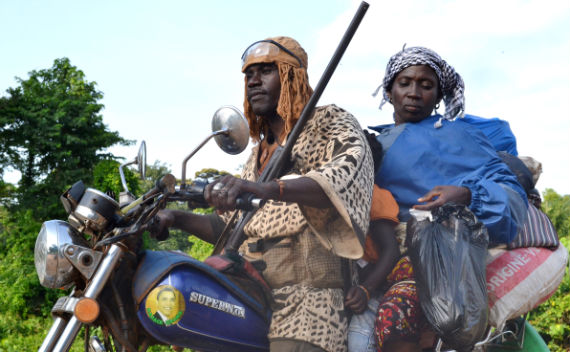Comment on Ivory Coast, Disarmament, and the Dozos
More on:

I am republishing an insightful comment I received on my blog post about Ivory Coast’s dozos from Joseph Hellweg, an assistant professor of religion at Florida State University, who has conducted fieldwork among the group.
I did three years of anthropological fieldwork among dozos in Ivory Coast in the 1990s, returning there in 2002 (at the moment when the rebellion began) and in January 2009 as well. I authored the book, Hunting the Ethical State: The Benkadi Movement of Côte d’Ivoire, which is cited in one of the articles linked to the blog, and I am interviewed in the other linked article. I very much appreciate Mr. Campbell’s efforts to raise awareness of recent accusations against dozos for war crimes. These atrocities need thorough investigation. Here I want to place them in a larger context.
Animosity between mostly Manding and Senufo-speaking dozos and Guéré-speakers in western Ivory Coast has a long history. Manding and Senufo-speakers have been settling in the region for decades to work on its rich agricultural fields. Land was delegated to them for their labor. But when economic conditions went sour in Ivory Coast starting in the 1980s, resentment developed, and the autochthonous populations wanted settlers to leave. Some United States citizens feel similar resentment (in my opinion, unjustified) against Latino immigrants, and for similar reasons at a time of dwindling economic fortunes. So whatever violence dozos—or members of the Forces Républicaines—may have committed against local populations, it sits within a larger historical frame, which makes it no less despicable.
But, that frame implicates “irregular” conduct beyond that of dozos alone. The rulers of the Ivoirian state have, since independence, manipulated ethnicity and religious affiliation to consolidate their power and to minimize that of their rivals. The same sort of ethnically motivated violence imputed to dozos has been wielded by the state itself since the Bédié regime inaugurated the doctrine of ‘ivoirité’, or “Ivory Coast for Ivoirians.” Politicians, behaving irregularly, beyond the bounds of legality, have been running Ivory Coast for years. Gbagbo, for example, came to power in elections organized by a regime that seized power in a coup d’état, and he remained in power even after having lost an election—at least in the eyes of the United Nations--the so-called international community. His authority and his forces were therefore far from regular. Ouattara’s forces, too, composed of men who had attempted a coup d’état in 2002, were hardly regular in their origins; yet many of them now belong to the Ivoirian army simply because they won a military engagement.
Mr. Campbell’s focus on the notion of “irregularity” therefore appears highly significant to me, simply because the notion of “regularity” has been so fluid in recent Ivoirian history. Mr. Campbell has, to my mind, identified the crucial question for understanding the viability of the country’s current transition back to some semblance of stability: How can the new regime establish a solid, transparent consensus on normative—“regular”—legality, when one has been absent for so long?
Philosopher Giorgio Agamben captured the Ivoirian state’s situation well, I think, with his notion of the “state of exception,” which he defines as a state that resorts to extra-constitutional means to bolster its ostensibly constitutional status. Successive Ivoirian presidents adopted this strategy, altering the constitution and other national legal documents at will and engaging in extrajudicial violence, as Amnesty International and Human Rights Watch have amply documented. The dozo phenomenon is therefore more exemplary of Ivoirian politics than exceptional to it. And it raises a provocative question: Whose power in Ivory Coast is not “irregular?”
More on:
 Online Store
Online Store